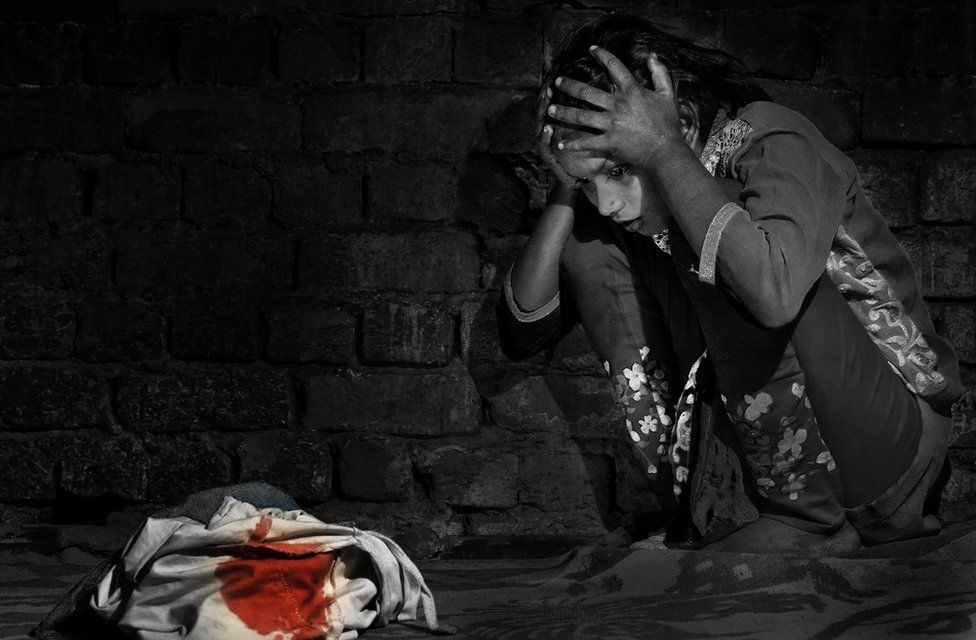
God is universal and its devotion is personal to his devotee. However, in India, there are several people such as temple priests and village elders that have for centuries acted as gatekeepers in controlling the devotee's access to God – more particularly, women's access to God. There are thousands of temples in India that permit unconditional access to men and women alike while there are many that have taken a hardline stance against allowing women who are either menstruating or of menstruating age.
As a case in point, the Sabarimala Temple in Kerala, a place of worship for 50 million devotees annually has for centuries has been out of bounds for women between 10-50 years of age. The temple grabbed national headlines in 2019 when two Indian women under 50 years of age made history by slipping into the temple undetected. It was only a few months earlier when the Indian supreme court overturned the centuries-old ban on women of menstruating age entering the Hindu temple – a ban that was staunchly defied by the temple Trust. Notwithstanding the weeks of riots and political bickering that followed the brave endeavor of these 2 women, there were a few aspects that became symbolic of the extent to which the fabric of our collective conscience has been impacted. The very next day after the incident, the temple priests closed the temple and performed a 'purification ritual' on the premises. The other one was that many among the mobs protesting the vilified act were women themselves who found it offensive that one of their own exercised their constitutional right to worship as per their choice.
It's just blood after all
To rationalize this prohibitive practice, one would need to first understand the core belief system that created and sustained this practice over centuries. Most such belief systems have their origins either in religious scriptures or in ancient Indian science such as ayurveda, yoga, and astrology.
The brahmins, who are the upper caste Hindus and regarded as custodians of the Hindu faith, adopted very defined concepts on purity and sterility. One of the most important rule books of Hinduism is the Mānava Dharmaśāstra (Manu's treatise on dharma), written around 200 BC. Manu's treatise contains verses defining the twelve bodily fluids which are deemed dirty – blood, semen, urine, excrement, snot, earwax, phlegm, oil, bone-marrow, tears, eye discharge, and sweat.

Since blood, in general, is impure, menstrual blood is seen as polluting and therefore menstruating women are not allowed to enter temples, which must remain in a pure state. And everything that has touched something impure becomes impure itself. Becoming impure by touching something impure is not insurmountable, since taking a nice bath can make you clean again. Taking a bath is also the way for menstruating women to cleanse themselves after their period. Thus, after bathing at the end of her menstrual period a woman is pure again and may enter a temple to pray or join in rituals. The Sabarimala temple has an additional rationale to restrict women's access – its deity, Swami Ayyappa is a 'Naishtika Brahmachari' (celibate), and women of menstruating age (10-50 years) may incur the wrath of Lord Ayyappa if they enter the temple.
Restriction to worship of deities in temples is not the only stigma resulting from women's perceived 'impurity' during menstruation. There are certain places in their own homes that are considered out of bounds for menstruating women. They are not allowed to visit the kitchen or touch food items such as pickles, sweets, etc., lest it becomes impure. In rural communities, menstruating women are banished to huts outside their village.
Arguments in favor of the restriction
While religious beliefs and traditions have predominantly shaped the decisions responsible for the bias against women, there are a few scientific pieces of evidence that are used to positively justify the tradition.
- There is a school of thought which propitiates "what is pure shouldn't be touched". By extension, what cannot be touched is considered taboo. Since a menstruating woman is so pure, she is considered a living Goddess during that time. If she were to visit a temple, the energy of the temple's idol will transfer over to her thereby rendering the idol lifeless. As a result, women are encouraged not to visit the temple during menstruation.
- According to Ayurveda, there is a build-up of energy in a woman's body in the days leading to menstruation. During menstruation, energy in a woman's body moves downwards which is in contrast to the upwards flow of energy during puja or chanting. These conflicting energies cause discomfort and pain to a woman during menstruation and hence they are advised not to visit temples where the energy levels are higher.

- During ancient days, women used to bathe in the river as there were no bathrooms in the houses. During menstruation, they would end up dirtying the river and hence started to abstain from bathing until the end of their periods. Since they did not have a bath during the entire menstruation period, they were considered "unclean" and prevented from visiting clean places, such as house kitchens and temples.
Counterarguments and reasoning of the non-conformists
While the non-conformists respect the puritanical views of the priests and some of the scientific rationale, their gripe is in the selective application of rules that are created by men, enforced by men, and in favor of men - emblematic of the patriarchal setup of Indian society. They believe women should be given the right to exercise their choice in every aspect just as men have. Listed below are some of the reasons and rationale challenging the bias towards women.
- All devotees visiting Sabarimala are expected to undertake a rigorous 41-day fast, abstaining from smoking, alcohol, meat, sex, and contact with menstruating women before they begin the journey. However, there is no such check for men on validating their abstinence before entering the temple.
- The Mānava Dharmaśāstra which classifies blood (and thus menstrual blood) as one of 12 impure bodily fluids also cites semen in the same list. While the man is cleansed with just a bath after shedding his semen, a woman is not as she is bound for a longer period of time during menstruation for no fault of hers.
- Citing hypocrisy, they claim the selective application of the rule to suit personal or political interests. As a case in point, they say, even Raghavendra Swami, a 17th-century saint was a Brahmachari, but there is no restriction for women visiting his shrine at Mantralayam.
- The basis of Sanatana Dharma is the Vedas and it doesn't state anywhere that a woman's body is impure or that she cannot participate in religious rituals during menstruation.
- Before 1936, people belonging to the low castes in Kerala were not allowed to enter Hindu temples as they would ruin the purity of the temple. However, post the Temple Entry Proclamation in 1936 all castes enjoyed equal access to the temples. This had no adverse impact and the temples continued to maintain its purity despite their presence. So, why would an "unclean" menstruating woman's visit to the temple ruin the temple's purity?
- The selective bias against women entering temples amounts to a violation of the right to privacy which is an integral component of 'Right to life and personal liberty' guaranteed under Article 21 of the Indian Constitution for men and women alike.
So, what is the right approach?
The practice of restricting menstruating women's access to deity worship in temples has a 300+ year history and has become a tradition. A tradition that has over time become a religious belief. But religion in India is hugely intertwined with politics. And politicians are sacrosanct about appeasing voters to remain in power. In the absence of an extremely strong political will, a solution that satisfies all quarters seems unlikely in the immediate future.
By judging women on their menstruation, we insult their fertility that is nature's gift for taking the human race forward. As it stands, there are no quick fixes to resolve this age-old social bias. The solution if any, lies in our individual conscience. When all of us are grouped together, we represent India's collective conscience. What we want as a nation begins with us. Period!
TO READ THE FULL ARTICLE

Get full access to the exciting content on The Mirrority by logging in
Support independent journalism
Even the very best of media houses in our country today are yielding to the pressure of click-bait journalism in order to survive. More than ever before, our country needs journalism that is independent, fair and non-pliant to the bureaucracy. Such journalism needs the support of like-minded readers like you to help us survive editorially and financially.
Whether you live in India or India lives inside you, help us continue to produce quality journalism with your contribution.
CONTRIBUTE
